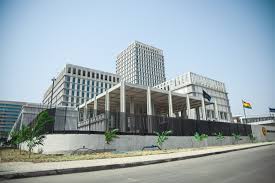BoG Backs Women’s Development Bank to Bridge Funding Gap for Female Businesses

The Bank of Ghana (BoG) has reaffirmed its commitment to promoting financial inclusion by supporting the establishment of a Women’s Development Bank, which is expected to ease long-standing credit barriers faced by female-led enterprises across Ghana’s economic landscape.
Speaking on behalf of the Governor at the 2025 African Financial Inclusion Policy Initiative (AfPI) meetings on June 20, First Deputy Governor Dr. Zakari Mumuni highlighted the strategic importance of the bank in unlocking access to finance for women-owned businesses in sectors such as agriculture, trade, and technology.
“This goes beyond general access to finance,” Dr. Mumuni noted. “We are focused on advancing gender-inclusive finance. That’s why in 2023, Ghana became part of the African Development Bank’s Affirmative Finance Action for Women in Africa (AFAWA) initiative. Through this partnership, we are supporting local financial institutions to extend credit to women entrepreneurs via risk-sharing mechanisms and technical assistance.”
He announced that the Women’s Development Bank, a key campaign pledge by President John Dramani Mahama during the 2024 elections, has now been backed by a substantial budgetary commitment. The government has allocated GH¢51.3 million as seed capital for the bank in the 2025 national budget, as disclosed by Finance Minister Dr. Cassiel Ato Forson during his budget presentation.
“This dedicated financial institution will directly address the persistent credit challenges that continue to hold back women-led businesses, particularly in key productive sectors,” Dr. Mumuni emphasized. “We believe women’s financial inclusion is not just a moral responsibility—it’s a smart economic policy.”
The proposed Women’s Development Bank is designed as a special-purpose institution to be managed predominantly by women and tailored to serve the financial needs of women-owned and women-led enterprises. It will provide low-interest loans, financial advisory services, and flexible repayment options aimed at empowering women economically—especially those in the informal and small-to-medium-scale enterprise space.
The establishment of the bank responds to widespread concerns that mainstream financial institutions often view women entrepreneurs as high-risk borrowers due to limited collateral or formal credit history, despite evidence that women exhibit high loan repayment rates.
By offering bespoke financial products and simplified access procedures, the new bank aims to close the gender financing gap while also fostering innovation and competitiveness among female entrepreneurs. Dr. Mumuni added that this intervention is expected to spur job creation, enhance household resilience, and contribute significantly to Ghana’s overall economic growth.
The move aligns with global efforts to promote women’s economic empowerment and the broader financial inclusion agenda. It is also in keeping with the African Union’s Agenda 2063 and the United Nations Sustainable Development Goals, particularly SDG 5 (Gender Equality) and SDG 8 (Decent Work and Economic Growth).
While implementation details are yet to be finalized, policy experts and advocacy groups have welcomed the initiative, calling it a bold step toward dismantling institutional barriers that limit women’s full participation in the formal economy.
Stakeholders are urging the government to ensure that the governance structure of the bank is inclusive, transparent, and focused on long-term sustainability. There are also calls for the institution to prioritize underserved rural communities where financial exclusion is most severe.
As Ghana moves forward with the rollout of the Women’s Development Bank, expectations remain high that the initiative will catalyze a shift in how women entrepreneurs access and benefit from financial services—transforming not only their businesses but the communities they support.







